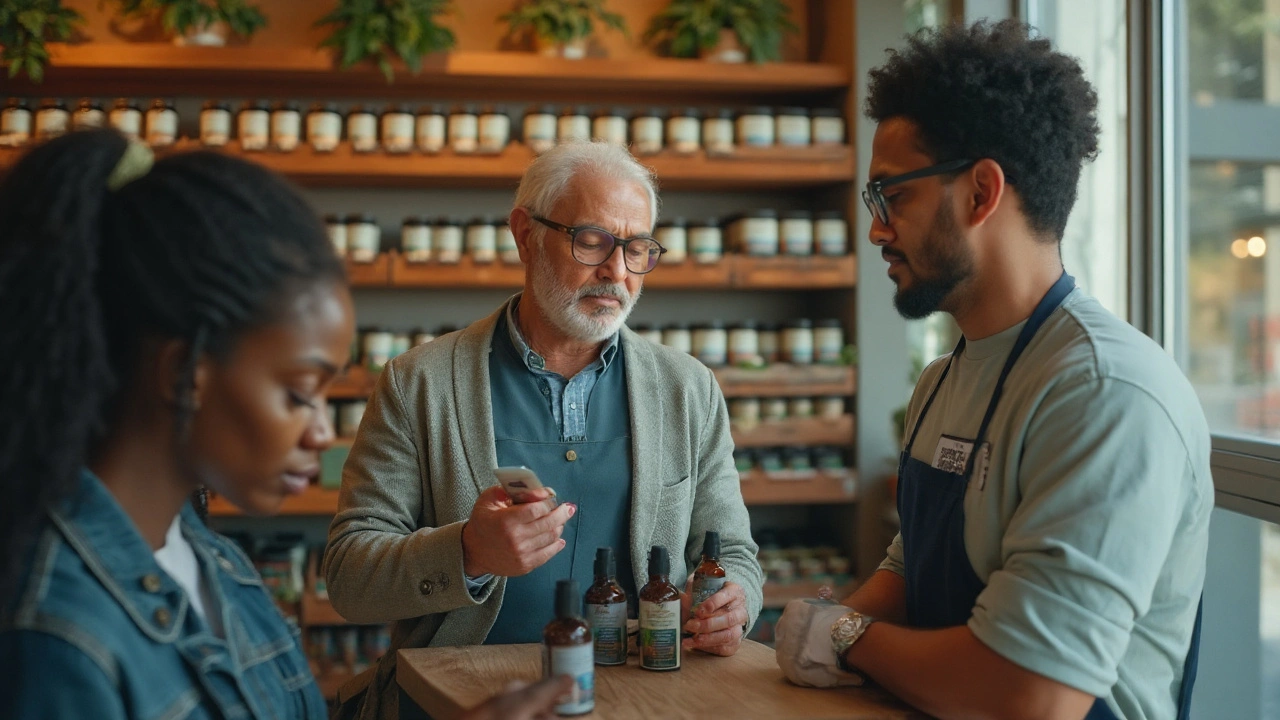Marijuana Dietary Supplements: Real Benefits, Real Risks, Real Choices
If you’ve seen CBD oil on a shelf or heard friends rave about THC gummies, you’re probably wondering if these products belong in your daily routine. The short answer: they can help, but only when you know what you’re taking, how much, and what side effects might show up.
What Counts as a Marijuana Dietary Supplement?
In everyday talk, a "marijuana dietary supplement" means any product that contains cannabinoids – the active compounds from the cannabis plant – and is marketed like a vitamin, mineral or herb. The most common forms are CBD oil, full‑spectrum extracts, THC‑infused gummies, capsules, and even topical creams that claim to support sleep, pain relief, or mood.
Keep in mind that the FDA does not approve most of these products as medicines. They are sold as “supplements,” which means the label can’t promise to treat or cure a condition. Look for third‑party lab results that show the exact amount of CBD, THC and any contaminants. If a brand can’t provide a certificate of analysis, skip it.
How Do They Work and Who Might Benefit?
CBD (cannabidiol) interacts with the body’s endocannabinoid system, which helps regulate stress, inflammation and pain. Studies from 2022‑2024 show CBD can reduce anxiety scores in some people and lower seizure frequency in rare epilepsy forms. It doesn’t get you high because it contains less than 0.3% THC.
THC (tetrahydrocannabinol) is the psychoactive part of the plant. Small doses in gummies or capsules can improve appetite for chemotherapy patients or ease chronic pain, but the high can also cause dizziness, dry mouth or short‑term memory lapses. If you’re new to THC, start with a micro‑dose – about 2.5 mg – and see how you feel before moving up.
People with anxiety, insomnia, mild arthritis, or those who need a boost in appetite often report benefits. However, anyone with a history of psychosis, heart rhythm problems, or who is pregnant should avoid THC‑rich supplements.
Now, let’s talk safety. Cannabinoids can interact with several prescription drugs, especially blood thinners like warfarin, anti‑seizure meds, and certain antidepressants. The interaction usually comes from the way CBD blocks the liver enzyme CYP3A4, which many drugs rely on for metabolism. If you’re on any regular medication, talk to a pharmacist or doctor before adding a cannabis supplement.
Dosage is another tricky part. Unlike vitamins that have a clear RDA, cannabinoid dosing varies by product potency, body weight and what you’re trying to achieve. A common starter dose for CBD oil is 5‑10 mg taken twice daily. For THC gummies, 2.5‑5 mg once a day is enough for most beginners. Always read the label, measure with a dropper or use the provided dosing chart, and adjust slowly.
Legal status also matters. In the U.S., CBD derived from hemp (less than 0.3% THC) is legal in most states, but THC products are only legal where recreational or medical cannabis is approved. Internationally, rules differ widely – some countries treat all cannabis‑derived supplements as controlled substances.
Bottom line: marijuana dietary supplements can be useful tools, but they’re not a magic fix. Choose products with transparent lab testing, start low, watch for drug interactions, and stay within the legal limits of your region. When you’re clear on these basics, you can decide if a CBD oil, a THC gummy or a full‑spectrum capsule fits into your health plan.
Marijuana Dietary Supplements: Real Health Benefits, CBD vs THC, Dosing & Safety (2025 Guide)
Curious if marijuana supplements are worth it? See what evidence says about CBD/THC benefits, safe dosing, side effects, legality, and how to pick quality products.
